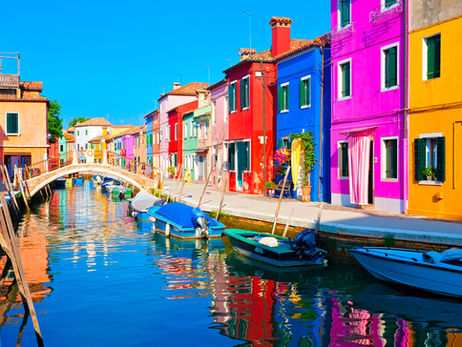England conceded over 250 in a T20 international for the first time as India posted a massive 253-7 after being inserted at the toss, but Bethell's 45-ball hundred took Harry Brook's side to the cusp of a remarkable victory.
Bethell shared in a superb 77-run partnership with Will Jacks (35 off 20) for the fifth wicket, leaving England needing a gettable 82 off the final six overs when the latter departed.
Axar Patel, who had earlier taken a terrific, tumbling catch over his shoulder to dismiss Brook (7), also played his part in a stunning relayed effort on the boundary to do for Jacks.
Scorecard: England vs India, T20 World CupMen's T20 World Cup 2026: Full fixtures and resultsStream T20 World Cup without a contract on NOW
Sam Curran (18 off 14) couldn't clear the boundary as effectively, while the returning Jasprit Bumrah (1-33) was typically miserly, ensuring England's required rate steadily climbed - even with Bethell's hundred heroics at one end.
Bethell went through to three figures as he hammered his seventh six, to go with eight fours, off the first ball of Hardik Pandya's penultimate over. But just three more runs were added from the next five balls - which included Curran's demise - to see 30 needed off the last, where Bethell was run out first ball.
The game finally beyond England, Jofra Archer struck three sixes to get them closer to the initial target, but it's India who advance as they bid to successfully defend their title in Ahmedabad on Sunday.
Samson stars again as India set T20 World Cup record
Sanju Samson had earlier proven the mainstay of India's extraordinary total - a new T20 World Cup record - as he smashed seven sixes and eight boundaries in his 89 off 42 - but he should have been dismissed for just 15.
Serving up a chipped chance to Brook at mid-on in the third over, the skipper somehow shelled the simple grab - and Samson made him and England pay.
Abhishek Sharma (9) holed out to deep midwicket in Will Jacks' second over, but Ishan Kishan came in and blasted 39 off 18 as part of an explosive 97-run stand with Samson for the second wicket.
The 100 came up for India in the ninth over as a 19-run Liam Dawson over was bettered by a 20-run hammering of Curran.
England, desperate for an answer, finally found one as Adil Rashid (2-41) removed Kishan, but Samson found another more than useful foil in Shivam Dube (43 off 25).
Samson would ultimately fall to Jacks (2-40) to start the 14th over, perishing unselfishly in pursuit of more boundaries as opposed to playing for a potential century.
India's momentum was far from derailed with his departure, as Dube, Hardik (27 off 12) and Tilak Varma (21 off 7) continued to dish out the punishment to England's attack - Archer, in particular, getting the treatment as his four overs cost 61.
Tasked with pulling off the second-highest T20I run chase of all time, there was at least a clarity afforded England's batters in the approach required - and Bethell certainly enjoyed himself.
England were 38-2 when Brook (7) fell cheaply to start the fifth over, bringing Bethell to the crease. He swiftly struck his second ball for six, and hit three more to start Varun Chakravarthy's next over.
Varun would bowl Buttler (25 off 17) two deliveries later but it would otherwise be a torrid night for the leg-spinner, as he conceded 64 from his four overs.
A quickfire Tom Banton (17 off 5) cameo, as well as the more telling contributions from Bethell and Jacks, helped England soar past the 100 mark off the first ball of the ninth over, Bethell bringing up a 19-ball half century in the 11th.
But the wicket of Jacks - to a fine bit of work on the boundary by Axar - ultimately proved decisive as Bethell didn't quite have enough support at the end to see England over the line.
Brook on drop and 'unbelievable' Bethell
England captain Harry Brook:
"We gave it a red hot crack and unfortunately we were on the wrong side.
"I will hold my hands up and say that I made a big mistake dropping Samson because catches win matches, it's that old famous phrase.
"Unfortunately it just didn't go our way in the field tonight, but on another day it comes off. There was a little bit of poor execution here and there, so we probably didn't execute as well as we could have.
"Bethell was unbelievable. I think he's going to earn some serious money in his career, and he will definitely have a long career with England.
"He has shown the world how good he is tonight. That innings is an extremely big positive to take from this tournament."
McCullum: I would love to stay as head coach
England head coach Brendon McCullum:
"At a hostile ground with total Indian support, the toughness the lads showed to take the game as close as we did, I am incredibly proud.
"I think they have been incredibly led by Harry Brook, who has grown as a leader. Young players have grown as well, so should be proud."
"I love the job. It's a great job. It doesn't come without its challenges of course but that is the nature of it.
"I feel we have achieved some really cool things over the last couple of years but there is still so much to achieve across all formats.
"I would love to carry on so we will see what unfolds. Right now, it's about getting home, seeing some fast horses and playing some shocking golf.
"A bit of time to reflect. To let things land and objectively look at what is and isn't working. We will see what happens and I would love to help lead the team through to the next stage."
Watch the T20 World Cup final between India and New Zealand at Narendra Modi Stadium in Ahmedabad, live on Sky Sports Cricket and Sky Sports Main Event from 1pm, Sunday (1.30pm first ball).
2026 Men's T20 World Cup knockouts
All times UK and Ireland; all games live on Sky Sports
Semi-finals
Wednesday March 4
New Zealand beat South Africa by nine wickets (Kolkata)
Thursday March 5
India beat England by seven runs (Mumbai)
Final
Sunday March 8
New Zealand vs India (Ahmedabad, 1.30pm)

















































